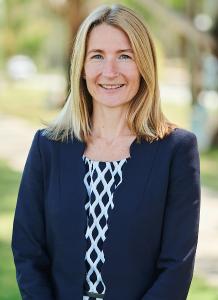Background
Papua New Guinea (PNG) is a constitutional monarchy and member of the Commonwealth of Nations. Head of State is Queen Elizabeth II, currently represented by Governor General Sir Bob Dadae. Since 2019, the government is led by Prime Minister (PM) James Marape. PNG’s unicameral national parliament has more than 100 members who are elected for five year terms. They nominate the governor general, who is then appointed by the British monarch, and the prime minister, who in turn appoints the ministers of the cabinet.
PNG occupies the eastern part of the world's second largest island (New Guinea), with the Western part belonging to Indonesia. The territory also includes the Bismarck Archipelago, Bougainville Island and Buka Island as well as several small islands and atolls. The country is frequently exposed to volcanic activity, earthquakes and tidal waves. In terms of ethnicity, PNG is a Melanesian country. In linguistic terms, it is one of the world's most diverse countries, with more than 700 native languages and even more local dialects. The majority of inhabitants live in remote rural areas surrounded by high mountain ranges. Many tribes in the interior have little contact with one another, let alone with the outside world, and are dependent on subsistence agriculture. If their members relocate to more densely populated areas, they clash at times with members of other tribes. One of federal governments’ major challenges is to turn its diverse people into one single nation.
From the 1970s onward, the country’s economy transitioned from being dependent on the export of tropical crops to one based on minerals. In the late 1980s, major natural gas and crude oil reserves were discovered; oil and gas production commenced in the following years. In 2009, a large-scale liquefied natural gas project was implemented, as were hydroelectric power supplies in the capital and the highland regions. The exploitation of resources caused landowners to raise concerns about environmental degradation, and to contest the distribution of revenues from it. In the late 1980s, these issues resulted in open warfare around, and the closure of, the Panguna mine (the world’s largest copper mine) in Bougainville, and fuelled the independence movement in this province. In 1997, the peace process was initiated with the support of the New Zealand Government and ultimately led to the signing of a truce. From 1998 onwards, the Australian Government oversaw the peacekeeping operation, which resulted in an agreement between the Federal Government and local leaders on the province’s autonomous status. In 2005, the then autonomous region elected its own parliament. As per the agreement enshrined in the Federal Constitution, a non-binding independence referendum was held in the end of 2019. Voters had the choice between greater autonomy and full independence; they voted overwhelmingly for independence. Negotiations between the Federal Government and the Regional Government of Bougainville on the implementation of the referendum are expected to continue until the second half of next year.
PNG's Parliament is in turmoil after PM Marape lost the support of key frontbenchers, including the Deputy Prime Minister, Sam Basil. In mid-November, in an attempt to prevent the budget and to remove the head of government, the opposition took control and voted to suspend parliament until 1 December. Notably, the PM was protected from a non-confidence vote until that date. In the opposition’s view, the Government failed to deliver in regards to corruption reform and economic development. The PM was criticised for his announcement to turn PNG into the world’s richest black Christian nation and from an oil and gas country into the food basked of Asia. Likewise, his support of a deep sea mining project in the Bismarck Sea, and attempt to nationalise a gold mine, was seen critically. He was also accused of failing to act on an alleged tribal massacre which purportedly resulted in the death of more than a dozen women and children. Following the suspension of parliament, the opposition left Port Moresby, reportedly over fears of a coronavirus outbreak and possible lockdown of the nation’s capital. They gathered in a so called ‘camp’ in its leader’s electorate to ensure the numbers they would need to overturn the Government. While the lockdown did not eventuate, the Speaker declared invalid the suspension and resumed parliament. This gave the PM the opportunity to pass the budget with less than half of its 111 members of parliament in attendance. The MPs also voted to adjourn parliament until 20 April 2021, thus preventing a non-confidence vote against the PM until then.
PNG governments are regularly based on loose and broad coalitions reliant on personal alliances. The PM’s Pangu Party, for example, held 23 of 111 seats only. Likely contenders, should the current PM be unable to regain majority support and fail in a vote of non-confidence, include the Governor of East Sepik, Allan Bird, the Deputy Leader of the People’s National Congress Party, Richard Maru, and the Minister for Foreign Affairs, Patrick Pruaitch. The opposition leader, Belden Namah, and the former prime minister Peter O’Neil, are considered to be less likely successors.
The Australian Prime Minister Scott Morrison decided to postpone his scheduled visit to PNG, presumably not least to avoid the impression of interference in domestic politics. Australia remains the country’s largest aid donor and most important bilateral partner.
In sum, there is - figuratively speaking - no ‘wanbel’ (Pidgin English for agreement) in PNG’s Parliament at the moment, and it may be a while until the issues are resolved. This leaves vulnerable a developing country that has reported 655 coronavirus cases and seven deaths to date.
Weekly Snapshot



